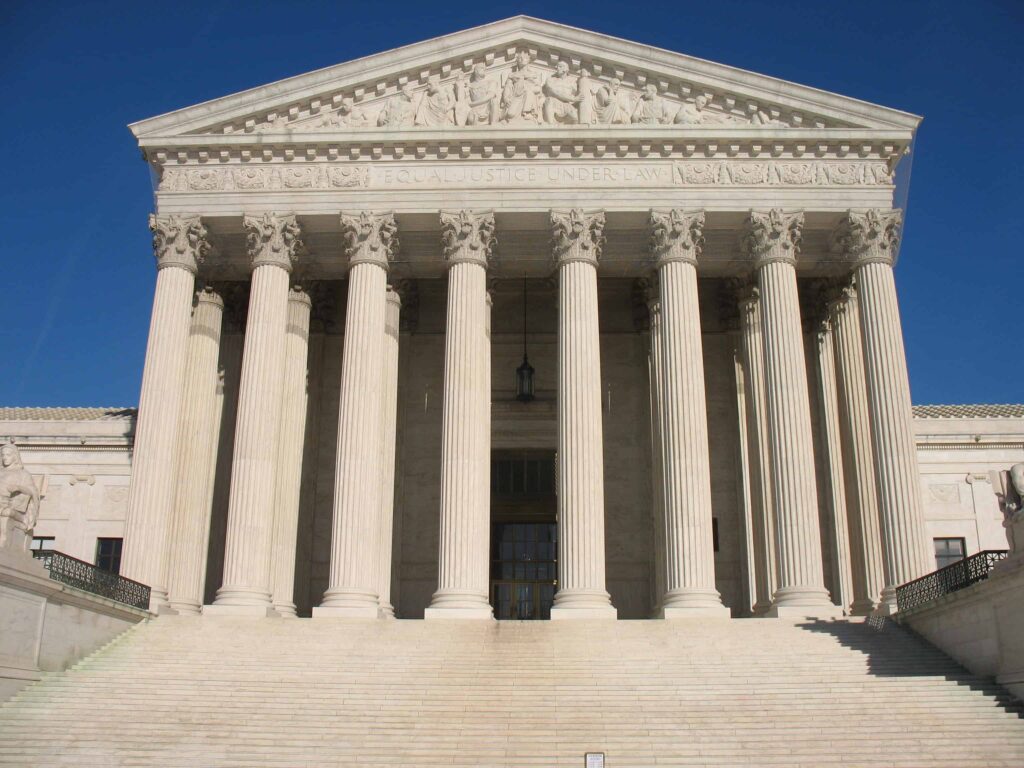 On February 26, 2018, the Supreme Court of the United States heard arguments in Janus v. American Federation State, County, and Municipal Employees, Council 31 (known as Janus v. AFSCME). While the court’s decision is not expected until the summer, critics have predicted that the justices will vote five-to-four in a ruling that would likely weaken public sector unions and impact approximately five million government workers.
On February 26, 2018, the Supreme Court of the United States heard arguments in Janus v. American Federation State, County, and Municipal Employees, Council 31 (known as Janus v. AFSCME). While the court’s decision is not expected until the summer, critics have predicted that the justices will vote five-to-four in a ruling that would likely weaken public sector unions and impact approximately five million government workers.
Janus v. AFSCME: A Brief Introduction
Mark Janus is a child support specialist at the Illinois Department of Healthcare and Family Services who works under a contract negotiated between AFSCME and the state. Though Mr. Janus is not a member of the union, AFSCME still has to advocate for him because unions are required under Illinois law to represent everyone in a bargaining unit equally.
The union contract also demands that each worker in Mr. Janus’ unit help cover “fair-share” or “agency” fees, which are the costs associated with collective bargaining. Such fair-share fees are not the same as union membership dues. Fair-share fees were first approved under the National Labor Relations Act of 1935. Their legality was later affirmed by the Supreme Court in 1977’s Abood v. Detroit Board of Education.
In 2015, Illinois Republican Gov. Bruce Rauner filed a lawsuit to end fair-share fees, claiming that they were unconstitutional. Though Gov. Rauner was eventually dropped from the case, Mr. Janus later joined the lawsuit as an injured party, arguing that he should not have to pay fees to AFSCME when he is not a member of the union. Mr. Janus is being represented by attorney William Messenger of the National Right to Work Legal Foundation.
The conservative groups funding the lawsuit argue that workers should not have to pay any fees at all on First Amendment grounds. They claim that collective bargaining for government workers is inherently political because their negotiations impact state budgets and the use of taxpayer funds. Therefore, they conclude that requiring workers to pay fair share fees would amount to compelled speech, violating the First Amendment.
Supreme Court Likely to Strike Down Fair-Share Fees
The Supreme Court’s decision will probably not arrive until June 2018, though observers of the high court now expect its conservative majority to rule against AFSCME and overturn the fair-share fees system.
If the court rules in favor of Mr. Janus, unions argue that the entire public sector in the United States would essentially become “right-to-work,” meaning that employees would no longer be required to pay anything to the unions that bargain on their behalf. The Janus v. AFSCME decision would affect an estimated five million public sector workers in the District of Columbia and the 22 states that are not currently right-to-work.
In 2016, the Supreme Court took up a similar case in Friedrichs v. California Teachers Unions, which involved public school teachers who were required to pay fair-share fees to unions. While the court had been expected to rule against the union in that matter, the death of Justice Antonin Scalia created a four-to-four deadlock that affirmed a lower court’s ruling allowing the fair-use fee system to remain intact.
However, in light of conservative Justice Neil Gorsuch’s 2017 appointment, the Supreme Court is now expected to rule five-to-four against ACSME and overturn fair-use fee requirements for public sector unions.
A Blow to Public Sector Unions
If the court finds in favor of the Plaintiff, critics argue that it could make it harder for public sector unions to survive because of what is known as the “free-rider conundrum.”
The free-rider conundrum describes a scenario wherein workers know that they benefit from the union’s actions but choose to opt out of paying fair-use fees anyway in order to serve their economic self-interest, since the union will continue representing them whether they pay the fees or not.
Observers note that public sector unions have had relatively easy time organizing compared to their private sector counterparts. Local governments, particularly in labor-friendly states, can be far less resistant to collective bargaining than private employers, who often spend heavily to hire union-busting consultants.
For this reason and others, the rate of union participation in the public sector has stayed fairly high even though overall union membership has plummeted. Only 10.7 percent of workers in the United States now belong to a union. This is approximately half of the membership rate in 1983 and far lower than the rate in the 1950s, when roughly one in three workers were in unions. Nevertheless, this number has been propped up by public sector union membership. While only 6.5 percent of private sector workers are currently unionized, 34.4 percent of public sector workers belong to unions.
With an unfavorable ruling in Janus v. AFSCME, unions may face greater pressure to prove their value to workers if they are no longer required to pay fees. For this reason, many large public sector unions have undertaken internal organizing campaigns to help shore up support among current members. Critics note, however, that such internal organizing comes at a cost, forcing unions to devote funds and effort to maintaining the status quo instead of growing, at a time when unions are already under siege from rollbacks on collective bargaining and right-to-work initiatives across the country.
A Hobbled Democratic Party
The ruling may also have an impact on the American political landscape. Unions have traditionally been heavy donors and providers of ground game support for Democratic candidates. A loss of fees will likely reduce unions’ ability to offer such assistance, significantly hurting the future electoral prospects for Democrats. In fact, researchers from the National Bureau for Economic Research have found that implementing right-to-work laws can cut Democrats’ share of the vote by 3.5 percentage points in presidential elections.
Meanwhile, a Democratic party hobbled by a lack of union support may in turn harm the unions themselves. Fewer Democrats in statehouses and Washington will probably mean few defenders for unions, making it easier for Republican politicians to pass anti-labor laws.
For this reason, Democrats and public sector unions remain anxious about the upcoming ruling in Janus v. AFSCME, as both groups face an uncertain future in the current political climate.
<< BACK TO BLOG POSTS